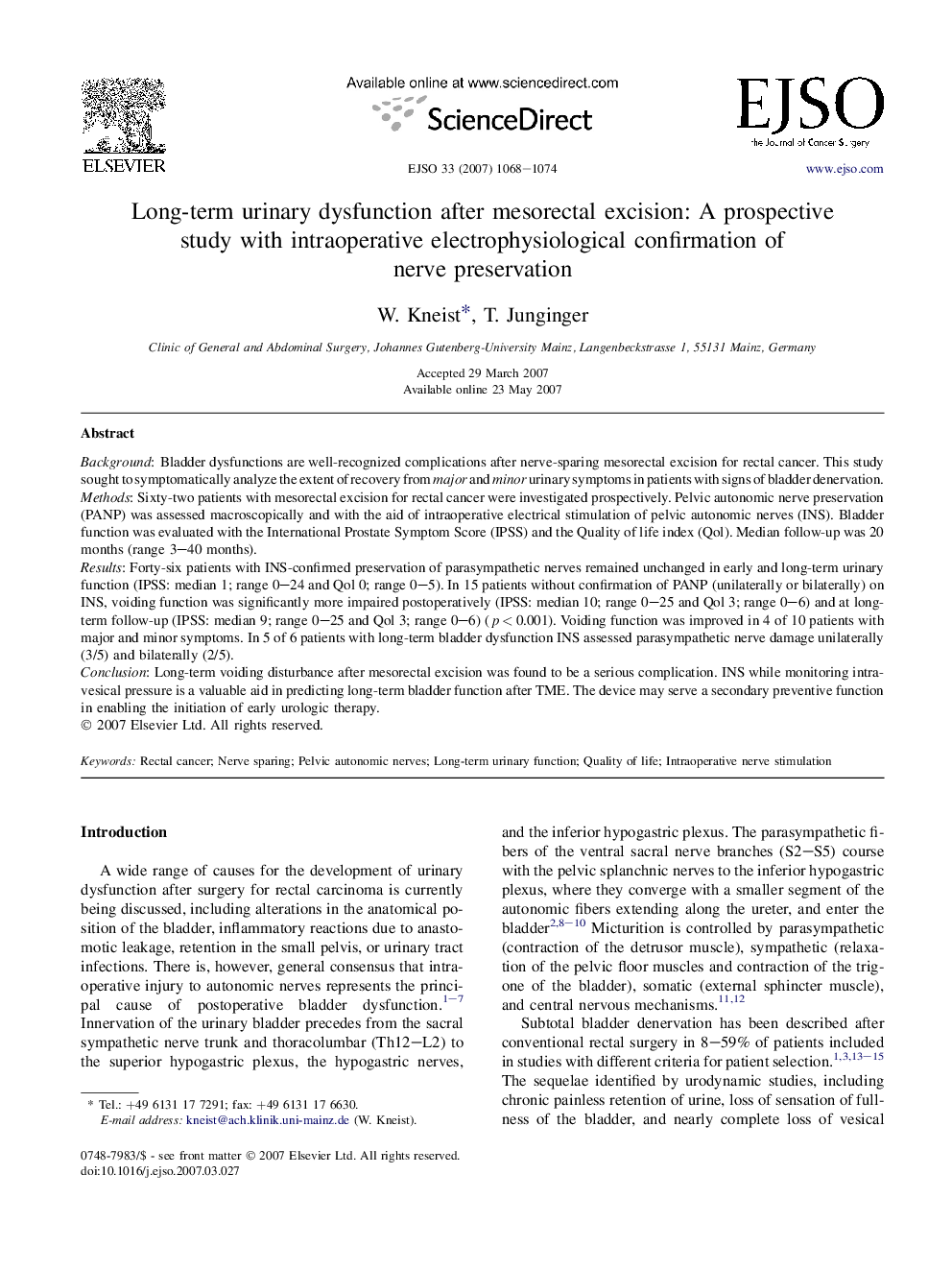| کد مقاله | کد نشریه | سال انتشار | مقاله انگلیسی | نسخه تمام متن |
|---|---|---|---|---|
| 3988400 | 1601470 | 2007 | 7 صفحه PDF | دانلود رایگان |

BackgroundBladder dysfunctions are well-recognized complications after nerve-sparing mesorectal excision for rectal cancer. This study sought to symptomatically analyze the extent of recovery from major and minor urinary symptoms in patients with signs of bladder denervation.MethodsSixty-two patients with mesorectal excision for rectal cancer were investigated prospectively. Pelvic autonomic nerve preservation (PANP) was assessed macroscopically and with the aid of intraoperative electrical stimulation of pelvic autonomic nerves (INS). Bladder function was evaluated with the International Prostate Symptom Score (IPSS) and the Quality of life index (Qol). Median follow-up was 20 months (range 3–40 months).ResultsForty-six patients with INS-confirmed preservation of parasympathetic nerves remained unchanged in early and long-term urinary function (IPSS: median 1; range 0–24 and Qol 0; range 0–5). In 15 patients without confirmation of PANP (unilaterally or bilaterally) on INS, voiding function was significantly more impaired postoperatively (IPSS: median 10; range 0–25 and Qol 3; range 0–6) and at long-term follow-up (IPSS: median 9; range 0–25 and Qol 3; range 0–6) (p < 0.001). Voiding function was improved in 4 of 10 patients with major and minor symptoms. In 5 of 6 patients with long-term bladder dysfunction INS assessed parasympathetic nerve damage unilaterally (3/5) and bilaterally (2/5).ConclusionLong-term voiding disturbance after mesorectal excision was found to be a serious complication. INS while monitoring intravesical pressure is a valuable aid in predicting long-term bladder function after TME. The device may serve a secondary preventive function in enabling the initiation of early urologic therapy.
Journal: European Journal of Surgical Oncology (EJSO) - Volume 33, Issue 9, November 2007, Pages 1068–1074